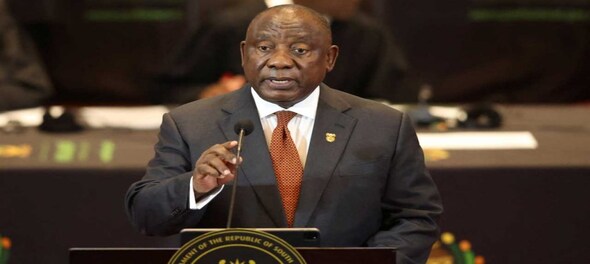
South African President Cyril Ramaphosa has invoked emergency disaster law to tackle the power crisis in the country. During his annual state of the nation address, President Ramphosa said that the emergency measures would apply from immediate effect. The “state of disaster” in the country comes 10 months after the previous state of disaster was lifted. The previous disaster emergency was imposed in order to deal with the COVID-19 pandemic.
What is the state of disaster declared for?
South Africa has been in the grip of an energy crisis leading to 10-hour power cuts throughout the country. Load shedding cuts have been instituted in the country as the national power utility and primary power generator, Eskom, has failed to meet the country’s power demand.
"Our country has, for many months, endured a debilitating electricity shortage that has caused immense damage to our economy. Now, persistent load shedding is impeding our recovery from the effects of these events," President Ramaphosa said during his speech in the Cape Town City Hall.
The long power cuts have severely impacted businesses even as the country’s central bank has cut down growth forecast from 1.1 percent to 0.3 percent for the year. Several industries were forced to lay off workers. The unemployment rate stood under 33 percent. However, one of the most hard-hit industry segments has been food production, food storage and the retail supply chain. With no electricity for over 10 hours a day, businesses haven’t been able to keep their freezers and fridges running leading to massive food spoilage.
The power cuts have also resulted in a poultry shortage in the country as day-old chicks are dying with no incubators to keep them warm. As a result, prices of food items like chicken, eggs and more have increased considerably.
Power cuts have also threatened food production supply chains. No power for irrigation, cold storage, ventilation and more has meant that milk production, fruit harvest, grains and more have been impacted.
What will the state of disaster achieve?
Eskom’s power generation struggles can be attributed to decades of mismanagement, corruption, ageing infrastructure, high debt and even acts of sabotage. As a result, power cuts have more or less been a daily part of South African life since 2007. While President Ramaphosa had introduced plans to reinvigorate Eskom when he took power in 2018, his plans of bringing new power stations, making renewable energy a bigger part of power generation and opening up the power sector to private companies are stuck in red tape.
The state of disaster will help President Ramaphosa’s government to navigate around the red tape. The decision “will enable us to exempt critical infrastructure such as hospitals and water treatment plants from load shedding . . . it will enable us to accelerate energy projects and limit regulatory requirements”, he said.
He also announced that a new minister for electricity will be appointed to deal with the energy crisis and to overlook the government’s effort to deal with the crisis. However, Eskom would still remain under the control of the Ministry of Public Enterprises. The government would also be fast-tracking new energy projects and also limit regulatory requirements. The president also promised tax breaks for generating solar power along with financial help for the country’s most affected.
Gwede Mantashe, the country’s energy minister, said that the energy crisis can be resolved within the next six to twelve months. However, Eskom has warned of power cuts continuing well into 2025 as the power generator takes many of its power plants off for maintenance. At the same time, experts suggest that the policy changes to open up the power sector to private players will take years to impact the power situation in the country.



